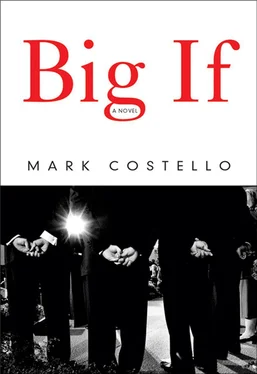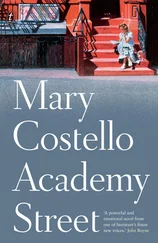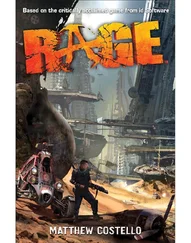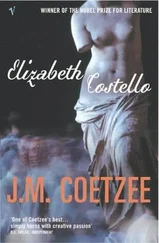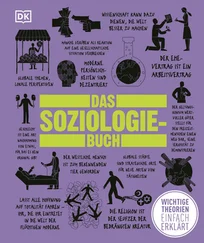Tim started the pep talk with a poll. “Who here has done GOTV before?”
Many hands went up. Among the volunteers, there were three hungry-looking women from Mothers for the Truth About Gun Violence, an Oregon school safety group, several tort reformers, two global-warming Deadheads, a smattering of action-seeking retirees up from Sarasota, ten boys from the UMaine football team (earning gut credits for a class on governmental processes offered only to prize athletes at that university), and a dozen bleary Texans from the teachers’ union. When Tim asked the question about GOTV, Peta raised her hand, as did the Deadheads and the tort reformers, and several of the caravanning retirees, and two of the ten football boys (who had somehow managed to flunk the gut class as freshmen the first time around and were taking it a second time in hopes of graduation). The others — the women from Mothers for the Truth and all of the Texans — didn’t raise their hands.
One old woman was a little hard of hearing. She cupped her hand to her ear and said, “What did he say?” This was Jackie Kotteakis, the retired prairie schoolmarm, the captain of the Texas volunteers.
“Who’s done GOTV,” Peta paraphrased for Jackie.
Tim was pacing like a general. “We could win or loose this thing by a thousand votes statewide. GOTV will be essential. Do you have a question, ma’am?”
“I’ve done GOTV,” said Jackie Kotteakis.
“You can put your hand down,” Peta whispered.
Tim continued pacing. “Our goal for today is one hundred percent turnout of our base. Now, how do we do that? Well, we have a plan.”
The plan, like Gaul, consisted of three parts or three subassignments. One group of volunteers would man the bank of phones along the wall, calling the base and generally urging it to vote. A second group would do visibility, pumping signs at intersections, Honk for the VP, Honk If You Love Reform, Honk If You Hate Dead Seas Due to Greenhouse Gases , the purpose being both to flash a last message to the eyeballs of the electorate and to deny prime intersections to the forces of the senator, who would also be asking motorists to honk. A third group would be assigned to GOTV.
“Now,” Tim said, “who here knows the meaning of GOTV?”
GOTV meant get-out-the-vote, the eternal ground game of elections. It meant sending vans of volunteers out into the countryside armed with lists of voters needing rides to the polls. Done properly, GOTV was a satisfying exercise, raw muscle, group effort, people pitching in. Peta knew the meaning of GOTV, but she didn’t raise her hand (Tim’s Q&A routine was getting on her nerves). To Peta, it was more than satisfying. It was the system vindicated, the world working as it was supposed to work.
A volunteer was handing out maps and voter lists, as Tim explained GOTV.
“ G ,” he said, “stands for Get. Who can guess what O stands for?”
Peta felt like raising her finger, but raised her hand instead.
They took the back roads out of Portsmouth, avoiding the slow death of 95, Peta and four volunteers riding in a placard-covered van. Jackie Kotteakis sat up front. The women from Mothers for the Truth sat in back. Peta, driving, finally felt a purpose, the gathering momentum of the day.
Jackie Kotteakis wore a button on her coat. Peta read the button: Kiss me — I’m a teacher . The button was designed to say a lot about the wearer, to convey a certain sassiness, irreverence, pride in one’s fill-in-the-blank profession or ethnicity (Peta had seen many variations, Kiss me — I’m Irish, Kiss me — I’m Slovakian, Kiss Me — I’m a roofer ). On anyone, the button would have made a statement, but on Jackie the effect was particularly striking, Peta thought. Jackie’s skin was deeply wrinkled, lightly powdered. Her hair was silver, flapperishly bobbed. Her shoes were cushioned nylon, an orthopedic sneaker with aggressive arching. Jackie’s manner in the van suggested many things to Peta, the patience of great age, kindliness, good posture, but not sassiness or kissing.
“You from around here, honey?” Jackie asked.
“Yes,” said Peta. “C.E. — Center Effing. Born and raised.”
“I can tell by how you drive. You know your way around.”
“You’re from Texas? Your whole group?”
Jackie nodded. “Longmont, north of Denton. You know Texas at all?”
“Not really,” Peta said. “I went to Houston once. I had to take this two-day ethics seminar for my realtor’s license. They give it all around the country, but Houston was the place that fit into my schedule.”
“You like it?”
“Houston? It seemed like a weird place to learn ethics. It was really humid.”
“Oh, Houston’s super -humid,” Jackie said. “It gets humid up by us, but not that Houston kind of humid.”
They ran out of things to say about Houston and the conversation flagged. Peta glanced in the rearview at the women from The Truth. She was trying to decide whether to ask them about their group, its positions and beliefs, the problem of gun violence and school shootings generally (the scariest thing going, Peta thought — the phrase itself, school shooting , made her kind of sick). There had been a rash of shootings that year and the year before, one in Oregon, one or maybe more in Southern California. Peta saw the stories in the paper, on TV, children shooting children after study hall, parents asking why. There was always at least one hero story in the mix, the brave teacher who disarmed the kid or led the other kids to safety through a locker room.
Peta wanted to ask the women from The Truth why children shot children, why there was, or seemed to be, a trend, and what could be done to stop them in the future, all the talk-show questions one might ask. But the women from The Truth were kind of spooky, Peta thought, the way they scrunched together on one bench, even though there were three benches in the van. One of them was named Hilly, or it sounded like Hilly when she said her name. The second was named Shannon (Peta heard it clearly) and the third one didn’t say her name, or did, but mumbled it, or mumbled something. The women from The Truth came from Oregon, different parts of Oregon. They had driven east together in a battered little camper to save money. They parked the camper at the inn, slept in back, and didn’t go out for pizza with the other volunteers, eating nothing or buffets. Peta had seen them that morning before Tim’s pep talk, feasting on the wreckage of the continental breakfast in the pressroom, obviously starving from the night before. They had a wounded, disemboweled look, and a Moonie farawayness in the eyes. Peta saw many people like these women in grassroots politics, victims-rights types, AIDS activists, ghost-souls brought together by some awful loss or tragedy. Peta guessed or suspected that what bound the women to The Truth, and to each other, was that they had all lost children in school shootings. It fit together suddenly, the gypsy life, the camper, the cultic closeness, the harrowed gaze. For a moment Peta felt for them. It’s Kai ten years from now who dies in the hallway with the others. It was fully real to her for as long as she could stand it, a moment and no more. Peta wanted to learn about gun violence, how to stop it, a truth, The Truth, anything at all, but she was afraid that if she asked the women about their group’s proposals, they would come out with something crackpot, angry and extreme, and Peta, feeling for them in one part of her brain, would be disagreeing with them in another part, and thinking they were crazy too.
The rain was thinning to a drizzle as they came into C.E. Hilly and Shannon got out at the Gateway-to-the-Wetlands Nature Center, the polling station for the area. Hilly took some signs, Shannon took a box of leaflets. Tim had assigned them to visibility. They would wave the signs and distribute literature, staying at least a hundred feet from the doors, as required by state law.
Читать дальше
